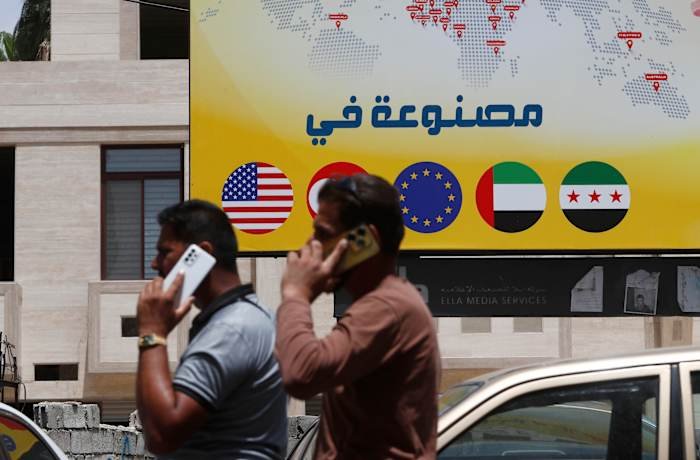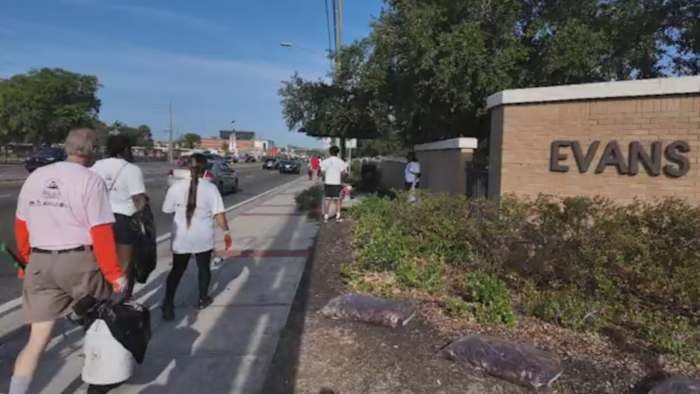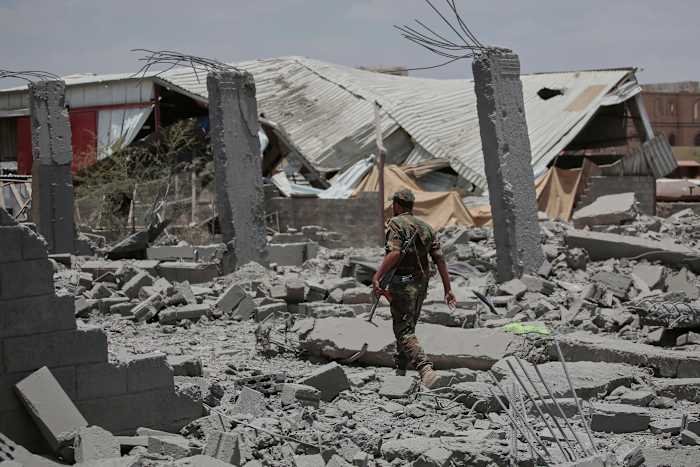Introduction
In a significant development for Middle Eastern politics and economics, Syria and Saudi Arabia have announced plans to boost economic cooperation following the recent easing of Western sanctions on Syria. This move marks a new chapter in regional diplomacy and could have ripple effects that reach communities far beyond the Middle East—including Orlando, where a vibrant Syrian and Saudi diaspora closely watches these geopolitical shifts. In this article, we’ll explore the background of the sanctions, what this new partnership means for both nations, and how it could impact local communities right here in Central Florida.
Background: From Sanctions to a Thaw in Relations
For over a decade, Syria has been under strict Western sanctions due to its prolonged civil war and the political instability that followed. These measures restricted the Syrian government’s access to international markets, severely affecting its economy and people. However, earlier this month, Western powers eased some of these restrictions, citing humanitarian needs and a desire to support reconstruction efforts in the war-torn country.
Saudi Arabia, a major player in the Arab world and a key U.S. ally, has often aligned with Western policies in the region. But as diplomatic winds shift, Riyadh has gradually re-engaged with Damascus. This rapprochement reached a milestone with the latest announcement: both countries intend to strengthen their economic partnership, aiming to generate jobs for Syrians, attract investment, and stabilize the region’s economy.
The Economic Impact: What’s at Stake for Syria and Saudi Arabia?
The new cooperation agreement between Syria and Saudi Arabia covers a wide range of sectors, including energy, construction, agriculture, and tourism. By pooling resources and expertise, both nations hope to revitalize Syria’s battered economy and open new markets for Saudi businesses. For Syrians, these investments could mean new job opportunities, improved infrastructure, and a pathway toward long-term stability.
For Saudi Arabia, the move is part of its broader Vision 2030 plan, which aims to diversify its economy beyond oil and strengthen ties with neighboring Arab states. By supporting Syria’s recovery, Saudi Arabia can secure new commercial opportunities, bolster its regional influence, and contribute to the stability necessary for broader economic growth in the Middle East.
International Reactions and Risks
The announcement has generated mixed reactions worldwide. Some Western officials remain wary, warning that economic engagement could inadvertently empower the Syrian government before meaningful political reforms are implemented. Humanitarian groups, on the other hand, cautiously welcome the easing of sanctions, noting that renewed economic activity could improve living conditions for ordinary Syrians.
Regionally, other Arab states are watching closely. Some may view this normalization as a blueprint for their own engagement with Syria, while others may remain hesitant. The risk remains that rapid economic engagement could outpace political progress, potentially undermining efforts for a lasting peace. Nevertheless, many see the agreement as a step forward in breaking the cycle of isolation and economic decline that has gripped Syria for years.
Local Connections: Orlando’s Syrian and Saudi Communities
While the economic developments are unfolding thousands of miles away, their effects are felt here in Orlando. Our city is home to a thriving Syrian-American community, many of whom have family or business ties to their country of origin. For these residents, news of eased sanctions and renewed investment brings hope for relatives still living in Syria and the possibility of expanded business opportunities.
Similarly, Orlando’s Saudi expatriate community, including students and professionals, keeps a close eye on developments in the Gulf region. Closer ties between Saudi Arabia and Syria may open new avenues for cultural exchange, business, and tourism, benefiting both communities locally. Moreover, as Central Florida businesses increasingly look to global markets, improved Middle East stability could translate into new partnerships and economic opportunities for our region.
Looking Ahead: What Comes Next?
The path ahead is filled with both promise and uncertainty. For Syria, sustained investment and job creation are desperately needed to rebuild after years of conflict. For Saudi Arabia, this partnership is a calculated step toward regional leadership and economic diversification. The international community will be watching closely to see if these economic overtures lead to meaningful improvements for the Syrian people and contribute to a more stable Middle East.
For Orlando, the story is personal. As the home to diverse communities with roots in both Syria and Saudi Arabia, and as a city increasingly engaged in the global economy, these developments matter. Local residents, business owners, and students have a stake in the region’s future—and will no doubt continue to play a role in shaping the conversation from afar.
Conclusion
The new economic cooperation between Syria and Saudi Arabia, following the easing of Western sanctions, is a major step toward rebuilding and stabilizing a region long plagued by conflict. While challenges remain, the potential benefits—for job creation, economic growth, and regional stability—are significant. Here in Orlando, our diverse communities are watching closely, hopeful that these changes will bring positive outcomes for families and businesses both here and abroad.
What do you think about the renewed ties between Syria and Saudi Arabia? How do you see this affecting Orlando’s communities? Share your thoughts in the comments below!
















